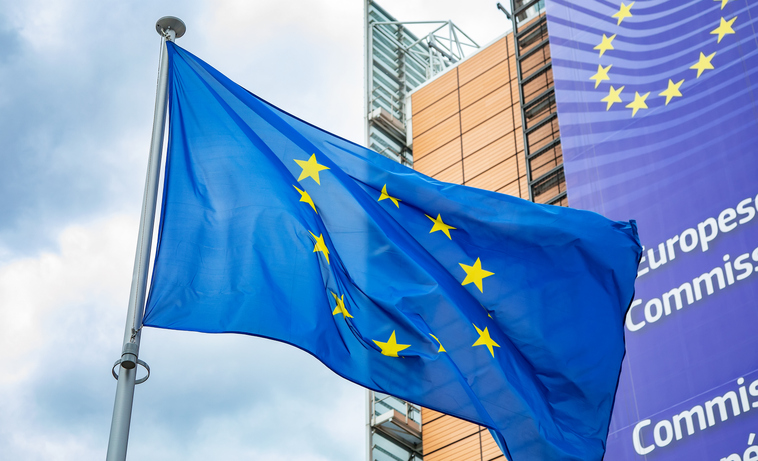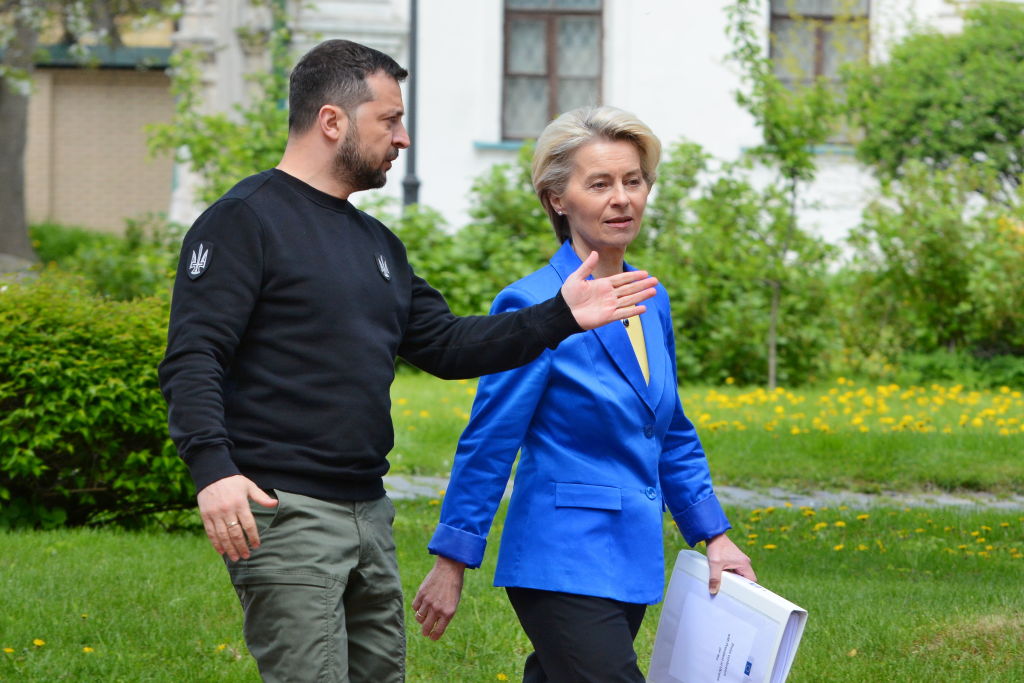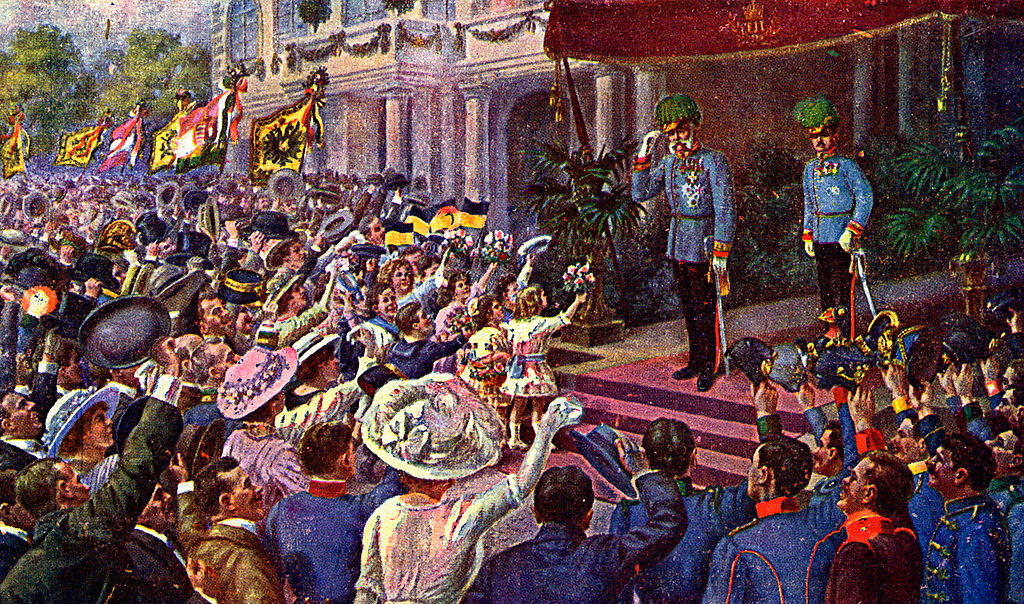In Europe, scary days are back again. The old continent is facing a two-front war, the most inconvenient position one can imagine. Ask the Germans whose ancestors got stuck twice in that predicament during the previous century. On the Eastern front European countries are facing Russia having invaded Ukraine and currently strangleholding that country. On the Southern front, the prospect is no less challenging; a permanent flow of illegal immigration that is gradually redefining Europe’s politics and culture from within.
The striking difference between both fronts is that European leadership is fervently mobilising forces to ‘REARM’ Europe and deal with the Eastern front, whereas ordinary voters demand effective action to counter the flow of immigrants on the Southern front. They are voting according to their wishes, as election results underscore across Western Europe. But on this front, political elites are visibly hesitant, for fear of being labelled ‘racist’. Who is right: Europe’s political elites or its peoples?
There is even an equally worrying trend of economic stagnation. The Green Deal envisages a climate neutral European economy by 2050 but that lofty goal gets out of sight. As windmills are planted all over Europe as if they are lively trees on a fairy-tale landscape, economic reality is brutal. The price of energy is soaring, companies are leaving, European citizens see their jobs exported because of de-industrialisation. Keeping a social welfare state intact in such a dire situation is like growing potatoes in the Sahara. As a result, Germany is facing political instability, a phenomenon Germans thoroughly dislike, and fear with reason. In France a court just decided to exclude Marine Le Pen from participating in the presidential elections of 2027. Both Germany and France will be increasingly exposed to political volatility.
So, here we are, proxy warfare with an opponent amassing 6.500 nuclear warheads on the East, and an invasion by feet and ferried across the Mediterranean. Immigrants are taking their culture and religion with them which they confidently aim implanting in Europe.
In a few words: an Eastern front, a Southern front and a deteriorating economy at home. A conundrum you wouldn’t wish on even your opponents.
How do ruling political elites and average voters in the member states diverge? The elites of member states – economic, political and cultural – give priority to the Eastern front by investing more money in defence; the EU is constructing a package of €800 billion; firstly called ‘REARM EUROPE’, a name which miraculously changed during the process into ‘EU PREPAREDNESS UNION’. Apparently ‘Rearm’ contained too much of an aggressive flavour.
The EU will start borrowing €150 billion on the capital markets increasing European debt rates. Even more worrying, members of the eurozone will obtain an exemption from the Stability and Growth Pact (SGP) of 1.5 per cent of GDP allowing them to make more debt. In fact, the SGP suffers the same fate as the German ‘debt brake’, recently laid to rest on a Berlin graveyard.
The EU has been cherishing an overriding goal: more power to Brussels on more levels, preferably all. As soon as a ‘crisis’ arises on the horizon, the EU Commission claims the ‘driving seat’ to steer through the hardship of climate change, Covid, Ukraine, while justifying additional funds. Ukraine is yet another opportunity. European frontline states like Finland, Poland and the Baltic states are understandably very supportive of the EU endeavour, because they experienced Russian rule for centuries. Particularly, Baltic states would undoubtedly be easy prey for the Russian eagle, had there not been their NATO membership. They put priority on the Eastern front, close to home and more so because they hardly welcome any migrants from Africa or the Middle East. Poland and Hungary flatly refused Muslim immigration, and so did others. Problem solved.
In Western Europe the opposite applies. Russia is far away and given the flawed nature of the Russian military offensive which got stuck in the mud of eastern parts of Ukraine, citizens in Western Europe do not expect a Russian officer knocking on their door any time soon. What they do fear is the abundant number of ‘foreigners’ roaming through the streets of major cities and all it entails: reduced security, lack of housing, reduced social security, more expensive medical care and educational levels in peril. Shortly, increasing systemic poverty, especially in the UK.
For them the Southern front is more important than the Eastern border. They demand an end to illegal immigration, in particular cultures anathema to Western values. In their streets they witness cultural capitulation of their political elites pandering to the wishes of the newcomers and their propensity for imposing their culture upon the countries in which they reside. For them the Southern front has moved to their doorstep.
Obviously, the tension within West European societies will incur public discontent and will inevitably produce social explosive. In three major West European countries, Germany, France and the United Kingdom, the political leadership tends to ignore the frustration and hardship of the common man and remains oblivious of political polarisation. British PM Keir Starmer focuses on Ukraine to distract from domestic unrest in British cities. French President Macron steers the judicial elite to make sure that the most promising contender for the French presidential election in 2027, Marine Le Pen, will be legally excluded and subsequently constrained at home by an ankle bracelet, rather than to reside in the Élysée. The road to the presidential elections in 2027 will escalate. The Right will mobilise la France profonde and depict Le Pen as the contemporary Jeanne d’Arc. The Left will increase immigration even more, distributing identity papers and assuring them voting rights. For the Left, migrants are the key to power. All very risky. After all, France is a country of revolution.
In Germany, Friedrich Merz recently won the general election of the German parliament but fatally gave in during negotiations; too eager to form a government under his leadership. Germans voted in favour of a policy turn to the Right. Straight after election day, Merz turned to the Left, to the satisfaction of the German Social Democrats and Greens. Merz blatantly misled his voters, causing his party to decline while the right-wing Alternative für Deutschland (AfD) is rising in the polls, on its way to become the biggest party of Germany. Merz caused a mess in Europe’s most pivotal country. The next likely step is hitting AfD with a Parteiverbot, prohibiting it altogether.
Citizens of the three biggest countries of Western Europe regard the Southern front, at their doorstep, much more perilous than the Eastern front, no Russian general in sight. However, their leaders will strenuously focus on the Eastern front to distract from the daunting realities the Southern front already has entrenched at home.
This discrepancy will not last for long, because citizens in Europe will revolt.





Zelensky drags America into war, or Zelensky loses